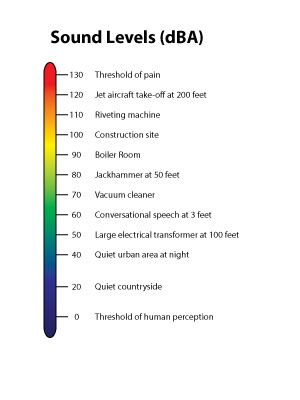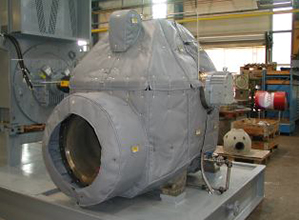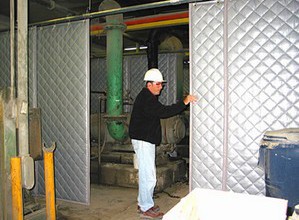Combatting Noise in Industrial Facilities
People working in industrial facilities face substantial exposure to noise. Think about a large factory with various pieces of machinery and continuous manufacturing processes. Unfortunately, many organizations tend to undermine the importance of noise control. However, noise problems only get worse if they continue to be ignored.
The success of an industrial business relies greatly on the actions of the management team to care for employees’ challengers. When noise is affecting the productivity of your workers and the flow of your business, you know you have a problem that needs an acoustic solution.
In this series of articles, we will discuss noise control and its implications in more detail, as well as suggest different options that can help fulfill your needs.
Why is too much noise harmful?
Working in a factory with exceptionally high noise levels on a regular basis is hazardous to employees’ health. The following are potential consequences to individuals and businesses if employers fail to properly handle noise issues.
- Hearing Loss. Currently, there is no remedial medical treatment for hearing damage. Though hearing aids offer some limited benefits, they are not completely fulfilling. Hearing impairment can seriously lower an individual’s quality of life. Affected individuals are more likely to feel lonely, isolated, and out of place.
- Stress and Annoyance. Any negative emotion can put strain on the well-being of your employees. You certainly do not want to run a factory full of stressed, annoyed people who are constantly complaining about workplace conditions.
- Low Productivity. Think about times when you needed to study or focus intently on something important. Were you able to concentrated in an excessively loud environment? There must be a reason why people study and work in the library. If you do not want to hurt workers’ productivity, make sure to offer a low-distraction working environment.
- Poor Communication. Imagine working in a place where you have to raise your voice, or potentially scream, every time you needed to communicate with a colleague. High noise levels can cause miscommunication, lost messages, misunderstood instructions, confusion, frustration, and irritation.
- Safety. Noise can lead to serious injuries. It can drown out the sound of alarm signals and warnings, causing unfortunate and preventable accidents.
 It is essential to noise that under guidelines set by the Occupational Safety and Health Administration (OSHA), failure to provide a safe place of work and any breach of noise regulations can subject your organization to heavy penalties. Currently, the specified legislative requirement is a noise level exposure of 85 decibels (dB(A)) over the course of an 8-hour work day.
It is essential to noise that under guidelines set by the Occupational Safety and Health Administration (OSHA), failure to provide a safe place of work and any breach of noise regulations can subject your organization to heavy penalties. Currently, the specified legislative requirement is a noise level exposure of 85 decibels (dB(A)) over the course of an 8-hour work day.
Facilities should aim for low noise levels. There may always be changes in legislation and it is unhealthy to subject individuals to high noise levels. Furthermore, if found in violation of OSHA regulations, you may need to financially compensate employees for hearing loss induced by the noise at work. Moreover, various costs can arise, including errors in work due to distractions, increased staff turnover rates, and costs of recruiting and training new employees.
Poor working conditions are unappealing to job applicants, especially highly skilled ones. If you want your industrial business to thrive and grow in the long term, it is better to prevent than to cure. Invest in noise control applications instead of risks OSHA visits, paying expensive fees, and damaging your business’ reputation.




